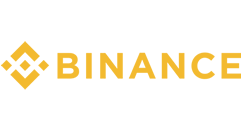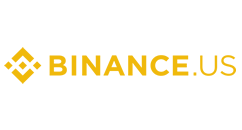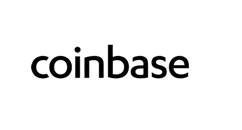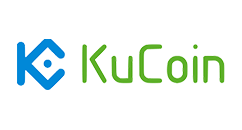Ethereum Name Service
$26.23
26.34000000
$869,940,544
Total Market Cap
100,000,000 ENS
Circulating Supply
$44,653,991
24h Volume
$869,940,544
Total Market Cap
100,000,000 ENS
Circulating Supply
$44,653,991
24h Volume
$869,940,544
Total Market Cap
100,000,000 ENS
Circulating Supply
$44,653,991
24h Volume
$869,940,544
Total Market Cap
100,000,000 ENS
Circulating Supply
$44,653,991
24h Volume
| # | Signal | Exchange | Type | Age |
|---|


| Logo | Exchange | Price | Pair | Spread | 24h Volume |
|---|---|---|---|---|---|
 |
Binance | $26.34 | ENSUSDC | $0.02 | $455,800 |
 |
Binance.us | $26.29 | ENSUSD | $0.09 | $227 |
 |
BingX | $26.34 | ENS/USDT | $0.01 | $155,971 |
 |
BitMart | $26.36 | ENS/USDT | $0.17 | $105,383 |
 |
Bybit | $26.405 | ENS/USDC | $0.08 | $95,916 |
 |
Coinbase Advanced | $26.33 | ENS-USD | $0.02 | $1,267,844 |
 |
Crypto.com | $26.358 | ENS/USD | $0.01 | $28,564 |
 |
HitBTC | $22.972 | ENS/USDC | $0.40 | $0 |
 |
HTX | $26.3386 | ENS/USDT | $0.01 | $4,895,723 |
 |
Kraken | $26.41 | ENS/USD | $0.05 | $64,395 |
 |
KuCoin | $26.324 | ENS/USDT | $0.01 | $187,250 |
 |
OKX | $25.895 | ENS/USD | $0.09 | $0 |
 |
Poloniex | $24.05 | USDT_ENS | $5.13 | $0 |
 |
ProBit Global | $26.34 | ENS/USDT | $0.01 | $352,437 |
The Ethereum Name Service, commonly known as ENS, is a distributed, open, and extensible naming system based on the Ethereum blockchain. While ENS has a token component (ENS token), it's important to understand that ENS itself is primarily a service rather than a traditional cryptocurrency.
ENS transforms complex cryptocurrency addresses into human-readable names, similar to how the Domain Name System (DNS) works for the internet. Instead of sharing a lengthy Ethereum address like "0x123f681646d4a755815f9cb19e1acc8565a0c2ac," ENS allows users to create and use simple names such as "yourname.eth." This innovation significantly improves user experience by making blockchain interactions more accessible and less error-prone.
The ENS token serves as the governance token for the ENS protocol, giving holders voting rights on protocol changes and treasury management. Since its launch, ENS has become a fundamental infrastructure layer for the Ethereum ecosystem.
At its core, ENS functions through a series of smart contracts on the Ethereum blockchain. These contracts manage the registration, renewal, and resolution of domain names. The system has two principal components:
The Registry is a single smart contract that maintains a list of all domains and subdomains, storing three critical pieces of information for each: the domain owner, the resolver, and the caching time-to-live.
Resolvers are smart contracts responsible for translating domain names into addresses and other identifiers. When an application wants to look up what address a particular ENS name points to, it queries the resolver designated by the registry.
ENS domains are sold through a modified Vickrey auction system, where users can bid on available names. Registration typically involves an annual fee paid in ETH, which helps maintain the sustainability of the service.
Unlike proof-of-work cryptocurrencies like Bitcoin or proof-of-stake coins like Ethereum 2.0, ENS doesn't offer traditional mining or staking. Here's what ENS token holders can do instead:
ENS token holders can stake their tokens to participate in the DAO (Decentralized Autonomous Organization) governance process. By staking ENS tokens, holders can vote on protocol proposals, including treasury allocation, fee structures, and technical improvements. This isn't staking in the sense of earning rewards through network validation but rather through active participation in protocol governance.
ENS does not have a mining mechanism as it operates on top of the Ethereum blockchain and inherits Ethereum's security model. There is no way to "mine" new ENS tokens.
Some decentralized finance (DeFi) platforms may offer yield-generating opportunities for ENS token holders through liquidity provision, but these are external to the ENS protocol itself.
The Ethereum Name Service (ENS) offers diverse functionality within the blockchain ecosystem:
The primary function of ENS is to convert complex Ethereum addresses into user-friendly names, reducing errors during transactions and improving overall usability.
ENS can point to decentralized content hosted on IPFS (InterPlanetary File System), enabling truly decentralized websites with the ".eth" domain extension.
An ENS name can function as a universal username across decentralized applications, simplifying the user experience across the entire Ethereum ecosystem.
Users can associate their ENS names with their NFT collections and tokens, creating a single identifier for all their digital assets.
ENS domains can store profile information such as email addresses, Twitter handles, Discord usernames, and avatars, creating a comprehensive decentralized identity system.
The ENS token was launched in November 2021 through a retroactive airdrop, marking a significant milestone in the project's transition to community governance. Here's how the ENS token distribution was structured:
25% of the total ENS supply was distributed to ENS domain name holders who had registered domains before October 31, 2021. The allocation was weighted based on how long users held their domains and whether they had set primary ENS names.
50% of the token supply was allocated to the ENS DAO treasury to fund future development and operations.
25% was distributed to individuals who contributed to the project, including core developers and community members who had helped build ENS.
This distribution model rewarded early adopters and ensured that the protocol would be governed by its actual users, enhancing its decentralized nature.
The total supply of ENS tokens is 100 million, making it a relatively scarce digital asset. Unlike some cryptocurrencies, ENS has no built-in inflation mechanism, meaning the supply remains constant unless changed through governance decisions.
ENS has seen integration with major wallets like MetaMask, Trust Wallet, and Coinbase Wallet, allowing users to send funds to ENS names directly. This widespread adoption has solidified ENS as a critical infrastructure component for the Ethereum ecosystem.
The ENS protocol has expanded its functionality beyond Ethereum addresses. It now supports multiple blockchain addresses, IPFS and Swarm content, and other metadata, making it a versatile naming service for all decentralized technologies.
For those interested in the investment aspect of ENS, the ENS token can be traded on numerous cryptocurrency exchanges. Cryptohopper offers an automated trading bot that supports ENS trading, allowing investors to implement sophisticated trading strategies without constant monitoring. Whether you're looking to diversify your crypto portfolio or specifically invest in Ethereum ecosystem infrastructure, ENS tokens are accessible through Cryptohopper's intuitive automated trading platform on any supported exchange.
As the Ethereum ecosystem continues to grow and evolve, ENS stands as a fundamental building block that makes the complex world of blockchain more accessible to everyone. By transforming cryptic addresses into human-readable names, ENS brings us one step closer to mainstream blockchain adoption.
Below are the most popular denominations to convert to USD and back into ENS
| ENS | US Dollar |
|---|---|
| 0.01ENS | 0.26USD |
| 0.1ENS | 2.62USD |
| 1ENS | 26.23USD |
| 2ENS | 52.46USD |
| 3ENS | 78.69USD |
| 5ENS | 131.15USD |
| 10ENS | 262.30USD |
| 25ENS | 655.75USD |
| 50ENS | 1,311.50USD |
| 100ENS | 2,623.00USD |
| 250ENS | 6,557.50USD |
| 500ENS | 13,115.00USD |
| 1000ENS | 26,230.00USD |
| 10000ENS | 262,300.00USD |
| 50000ENS | 1,311,500.00USD |
| 100000ENS | 2,623,000.00USD |
| US Dollar | ENS |
|---|---|
| 0.01 USD | 0.00038124ENS |
| 0.1 USD | 0.00381243ENS |
| 1 USD | 0.03812429ENS |
| 2 USD | 0.07624857ENS |
| 3 USD | 0.11437286ENS |
| 5 USD | 0.19062143ENS |
| 10 USD | 0.38124285ENS |
| 25 USD | 0.95310713ENS |
| 50 USD | 1.90621426ENS |
| 100 USD | 3.81242852ENS |
| 250 USD | 9.53107129ENS |
| 500 USD | 19.06214258ENS |
| 1000 USD | 38.12428517ENS |
| 10000 USD | 381.24285170ENS |
| 50000 USD | 1,906.21425848ENS |
| 100000 USD | 3,812.42851697ENS |